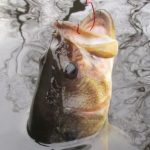Fishing journals are essential tools for anglers. Fishing journals record important information about fishing trips. In many cases, these journals become priceless sources of information as they document fish behavior over a span of time. Fishing journals are kept by recreational anglers, professional fishing guides, charter boat captains, researchers, and others that are involved with fisheries.
Some angler’s journals are as simple as a pocket-sized notepad while others are kept in elaborate, hardbound books. In addition to paper journals, there are countless electronic options for recording data. As more and more anglers gained access to personal computers, fishing software grew in popularity.
Computer programs allow anglers to use powerful tools for storing, sorting and analyzing information. Technology continues to evolve, allowing fishing journals to be kept on blogs (web logs), social networks, smart phone apps, and other methods.
Regardless of the format, most anglers logs and fishing journals provide the same basic functions. Journals record date and time, location, weather conditions, tidal or water flow information (if applicable), fish measurements, and other data. Most journals also include an overview of the trip including information about fish behavior, nature, or other observations. When records are kept electronically, photographs or video footage may also be included with entries.
As entries build up in a fishing journal, valuable patterns often begin to appear. Anglers may notice that productive fishing days tend to coincide with events such as changing barometric pressure, tidal phases, or other occurrences. In some cases, a journal might indicate that productive fishing often coincides with the seasonal appearance of a specific bird, insect, or flower.
Anglers also gain insight about fishing techniques by studying past journal entries. For example, a fisherman might use a variety of lure colors over the course of a season, with the success of each color varying among trips. Over several seasons, a fishing journal might help show a relationship between the most productive lure colors and water visibility, ambient light, or other factors.
As each fishing season is logged, a fishing journal becomes more and more valuable. Most anglers simply retain their past logs for personal use, but some fishermen eventually utilize their logs in other ways. Old fishing journals sometimes become useful decades, or even centuries later.
Outdoor writers sometimes consult their old journals, occasionally including entries in their work. Old fishing journals are highly prized by historians and other researchers as they contain a wealth of historical, natural and cultural information.
